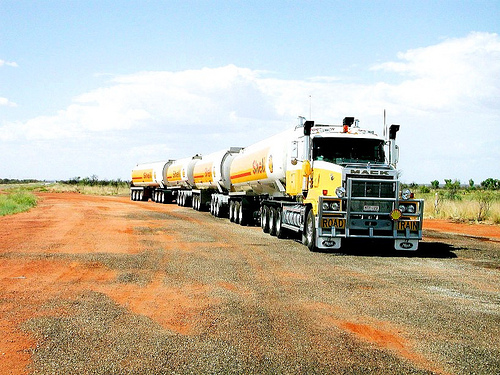How management style impacts usefulness of employee data
Pick one:
- A corporate culture that promotes employee engagement, collaboration, and teamwork
- A corporate culture that promotes competition
A new study says you can’t have it both ways—especially in the current, data-centric climate.
What do corporate culture and management style have to do with data? As it turns out, a lot.

A study at a transportation-reliant company found that using data to spur competition between workers only worked if the company already stressed individual performance. Image from Werner Bayer.
The study, co-conducted by researchers at New York University and Columbia University, set out to explore the interaction between two business and management trends:
- The first trend: Moving away from competitive corporate culture in favor of employee engagement, collaboration, and teamwork; and
- The second trend: Increasing reliance on advanced data delivery and tracking systems to plot individual and collective employee performance.
The study’s researchers investigated a trucking company at which both trends were being embedded in the corporate framework.
At the time of the study, the trucking company was beginning to shift away from competition and toward the “new,” collaborative framework. They were simultaneously “in the process of fitting its trucks with an electronic on-board recorder (EOBR), which provide drivers with information on their driving performance.”
For example, the EOBR can tell the driver (and the driver’s boss) how the driver is doing in terms of actual average miles per gallon versus potential average miles per gallon. The EOBR also collects information on several other indices of driver efficiency.
Like many companies that have jumped on the data collection bandwagon, the trucking company wanted to know how best to use the data in order to encourage improved driver performance.
Of course, managers could simply pull drivers aside and say, “Hey, here’s what your last few trips looked like, and here’s where you have room for improvement.” But instinct—and generations of corporate strategy—suggested that a bit of competition, fueled by public disclosure of each driver’s performance numbers, would be more compelling.
And what did the study find?
Public disclosure—including both the performance numbers and the respective drivers’ names—worked well, but only in the areas of the company in which the internal culture shift toward a collaborative environment had not yet taken place.
Here’s how they figured it out:
The researchers managed to deploy an experiment in which all of the study participants were subjected to public disclosure of performance numbers, but some of the participants had only been exposed to the old, “every man for himself” style of management practice—while other participants (the control group) had undergone conversion to the new, collaborative style.
This variability control was made possible because the new management style was being deployed on a site-by-site basis, and not all sites had undergone the conversion.
Those accustomed to the old style of management seemed to embrace the competitive nature of public disclosure. They were used to a culture focused on individual performance and friendly one-upmanship.
Thus, being able to see exactly who was ahead of them provided the fuel to enhance performance. This group “responded on average positively to the performance postings, improving their fuel efficiency by 4.5% and reducing their idling time and wasted fuel by 1.1% and 1.8%, respectively, relative to the control group.”
As for the control group, the opposite was true. Under the new management style, these employees had been led to believe that individual performance mattered less than teamwork and overall results. When evaluating these employees, the researchers recorded “a substantial drop in performance…in the form of a 10.7% reduction in fuel efficiency and an increase of 2.5% in idling time and 4.4% in wasted fuel, relative to the control group.”
In other words, emphasizing data-driven competition at the same time as teamwork sends very mixed signals and has a negative impact on performance.
The researchers resist making a value judgment on either the trend toward emphasizing teamwork and collaboration or the trend toward data-sourced performance tracking. They simply suggest—strongly—that a company isn’t likely to be successful if its managers simultaneously attempt to emphasize teamwork and use data collection to spur competition.
Is this finding exclusive to transportation companies? Certainly not. While the specificity of fuel efficiency makes a very illustrative case, the lessons can be extrapolated across nearly every imaginable industry vertical.
We know that data-driven companies tend to perform well. That trend isn’t going anywhere. The trick, it seems, is deploying the data in a way that makes sense with your corporate culture.








